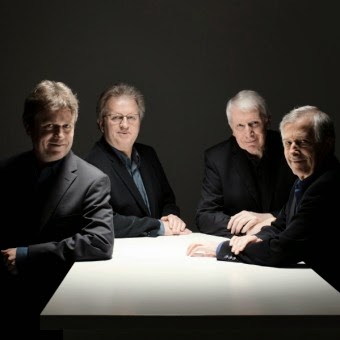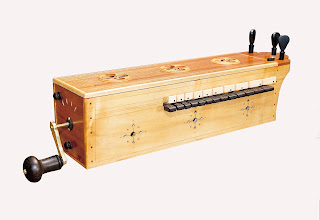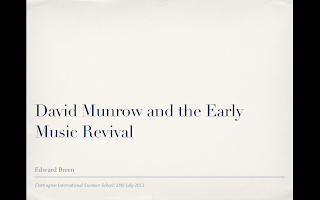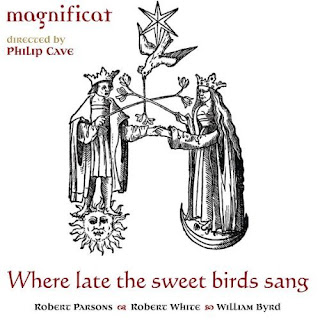Search This Blog
Early music and more by Edward Breen
Where possible, review entries are linked to their original publication.
Posts
Showing posts from 2013
Performance: The Hilliard Ensemble’s 40th Birthday Party
- Get link
- X
- Other Apps
Dartington International Summer School 2013
- Get link
- X
- Other Apps
Abstract for The 2013 Medieval and Renaissance Music Conference - Certaldo (Florence, Italy) 4-7th July
- Get link
- X
- Other Apps
Where late the sweet birds sang: Parsons, White & Byrd
- Get link
- X
- Other Apps





